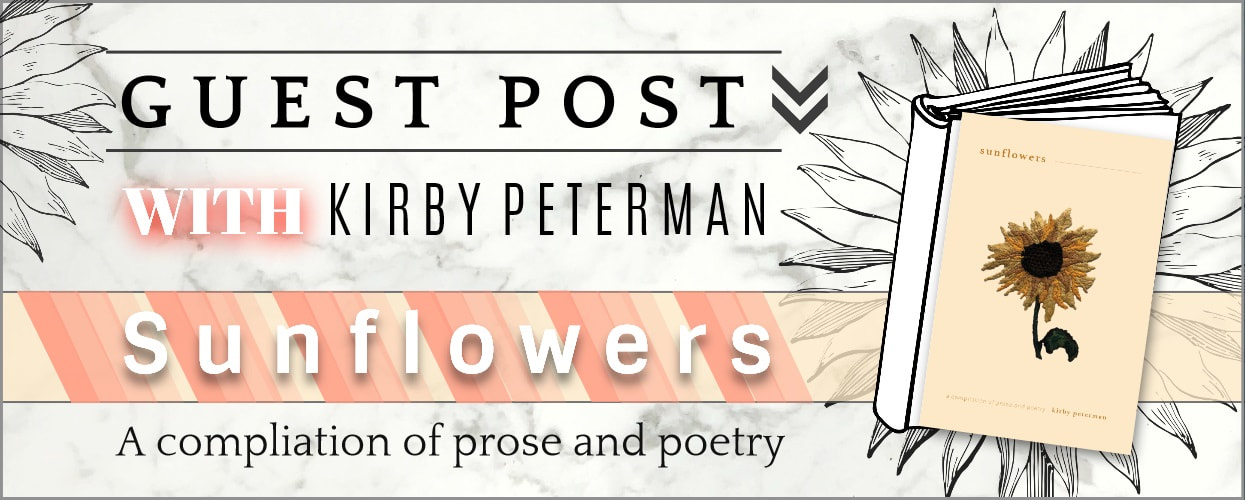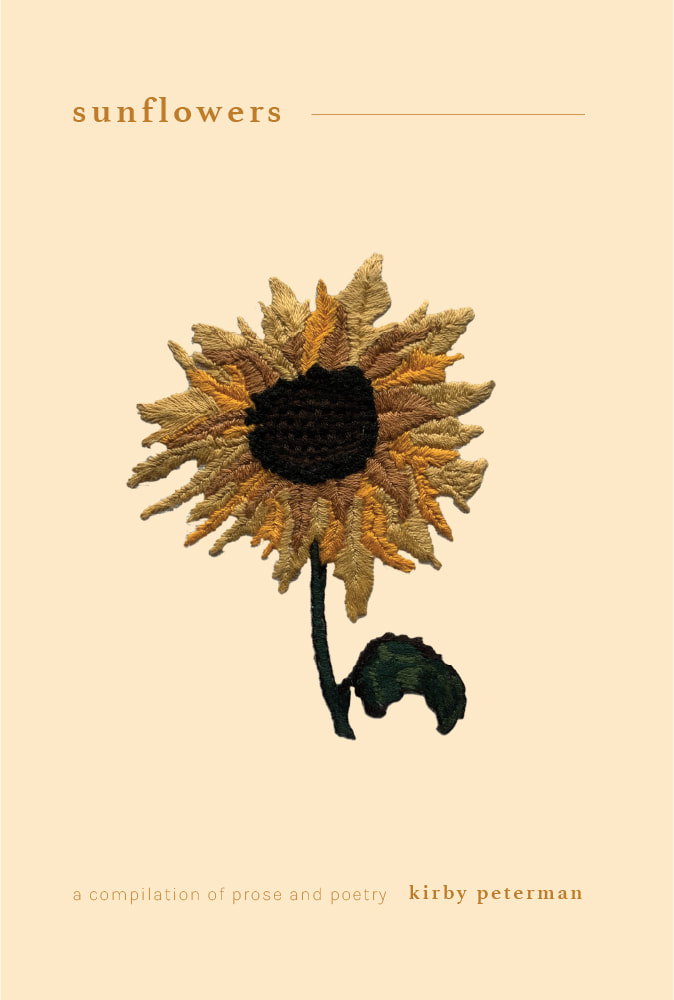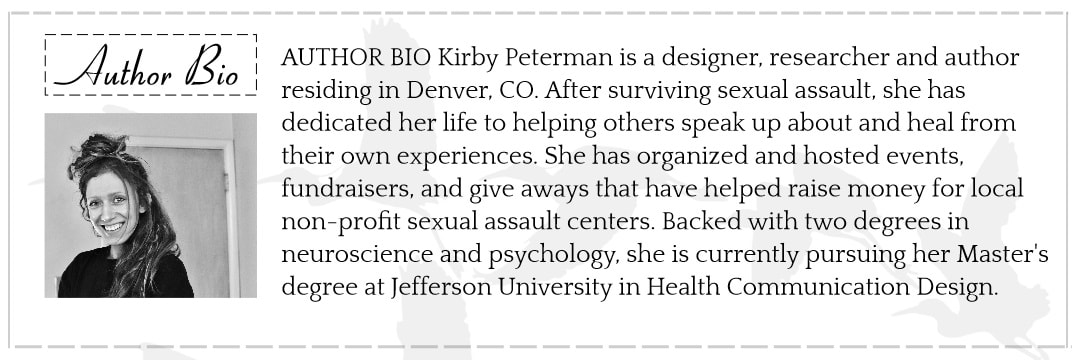|
Photo credits: b0red (pixabay), ready made (pexels) Edited by Vaishali Author and advocate for female autonomy, Kirby Peterman arrives with an emancipating piece on body sovereignty. From her struggle with anorexia and subsequent recovery, to consent and feminine integrity she bares her affair with mental illness and trauma in a meaningful effort to share her important perspective on equity for women, freedom from repressive standards and every social and self-supplemented blockade that mandates the defeat of feminal rights. Body sovereignty is a term that describes how personal permissions, impressed boundaries and a holistic awareness might free us from body censorship. An acceptance can then be built not on fear, habit, passive sympathy for the status quo, toxic consumption or social pressure but on entitling an exemption from all of the above. It means our bodies have their own independence, and in having one we should be body-sighted; to encourage full ownership of and a wholesome empathy for the bodies we wear and wire every day, from eating to dressing to moving to expressing to carrying the weight of stares, to self-recognition and self-scrutiny. How leaning into, becoming familiar with and trusting our authentic selves can be a freedom from female-specific discipline and to alternatively welcome self-aligned confidence in place of meeting every expected demand outside of ourselves. In a compelling and vital case of, I have a body, it is therefore mine to govern. After outlasting an eating disorder and sexual assault, not without lasting trauma, self-reflection and wrenching, raging confusion, Peterman wrote her pain and healing into a book she titles 'Sunflowers'. A communicating mix of written poetry and prose that takes a reader on her own journey with an inward looking and intuitive attitude. With an imparting focus on women's mental health, self-love, romantic love, recovery, rape and consent, Peterman's biggest hopes are for the outspoken realities of bodily invasion and recovery from the unseen traumas - that span taught bigotry to impressionable violations - that girls and women are made to suffer through every day, everywhere. The following article may contain triggers for sensitive or affected readers. The below expresses thoughts, feelings and situations that revolve around an eating disorder and edges into forms of consent. BODY SOVEREIGNTY There was this day I went to the doctor, back when I was getting mandatory check ups on my health, scheduling appointments to check on my hormones, on my blood work, test after test to make sure I was truly recovered. I had learned from a past appointment that I could ask for a “blind-weight” to prevent the triggering act of stepping on the scale. For a few appointments I continued to ask for a blind weight, “I’m a recovering anorexic,” I would say as I turned red at their looks of pity and concern. Now, it is much easier to talk openly about my anorexia but back then it was still shrouded by years of practiced, impermeable secrecy. I’d put up my defense of apathy as they hid their charts from me and asked if I was still seeing my therapist or if I wanted to connect with a nutritionist. But, after a while, I realized a blind weight only caused me to think more about this number. What did it say? What did the nurse think of me? I feel heavy today and my pants are a little tight so I will eat less - just in case. What does my stomach feel like or how do I look in the mirror? How are my thighs on this doctor table? Knowing and not-knowing was equally damaging. I decided that next time I would ask to skip the weighing part. If I had to go to these appointments it was better off that I didn’t dread them for a week in advance and fight my desires to go hungry for a lower number. It was better I didn’t toil over what might have been on that scale afterwards. It was better I didn’t step foot on this worth-damaging machine. This day, I decided to use a new line for the first time: “I actually don’t want to be weighed. It is triggering for me.” I prepared each detail in my head. I would walk through the first door toward the scale and as they took my height, I’d say it. It will be easy. I went back with the nurse and said my perfectly enunciated line with confident inflection that I had practiced in my head. The nurse was puzzled. She took my height and urged me to get on the scale without looking. “No, I’d rather not step on at all.” Clearly she had not encountered this response before. She hesitantly took me to my room to wait for the doctor. I regretted what I had done. I should have just gone along, right? Her face was so confused and I felt freakish. No, I debated with myself, I am allowed to not get weighed. This appointment is to check my IUD strings after all, not my BMI! Another nurse comes in, “Hi, Kirby? We really need to get your weight today, it is okay not to look at the scale but we need it for our records.” I thought this was over! “I’d really rather not get weighed today, it is triggering for me.” She said she would let my doctor know. In comes my doctor, “Hi, Kirby. How are you today? I heard you don’t want to get weighed, but why don’t we go ahead and let you do a blind weight.” I don’t know what to say. I don’t want to do this and it is becoming more triggering and more of an embarrassing ordeal than I had intended. “Yeah, I just don’t want one today.” I smiled, uneasily, growing more self-conscious. She decided to tell me that I could just slip off my shoes and stand on it backwards, and I finally, embarrassed and resigned to the lack of control I had over the situation, followed her to the scale, feeling defeated. The problem is that this practice is triggering for many more women than myself. This is called body suppression and it is the opposite of body sovereignty, an idea that has become an important term for my journey towards self-confidence. Body sovereignty is much more than choosing to be weighed or not. It is the concept of having full control over one’s body, free from the confines of society. It can be practiced just by being yourself - freely laughing with your honking loud laugh you hate and usually try to suppress, letting your tattoos show, not wearing a bra, letting your bra straps show. It could be ordering a salad because you love them, or ordering pizza when your friend orders salad. It could be finishing three baskets of tortilla chips at a restaurant or buying cold brew at 4:00 PM. I remember as a young student I hated asking to leave class for the restroom because some teachers would tell you to “hold it” until the passing period. They didn’t believe that you were going to the restroom and not just skipping class. Unfortunately, we grow accustomed to this practice and it manifests later in life in uncomfortable ways. When my sister-in-law was pregnant, others would speak to her baby bump or rub it and talk to her belly rather than ask for permission or talk to her face. We have sex when we don’t want it because our significant other is in the mood. We don’t say anything when that man stares for too long so we don’t start an issue. We pretend we are not in pain when our body is asking us to rest. We learn our whole lives to suppress our bodies and we suffer in very real ways under the expectations we have learned to meet. Body sovereignty also brings new dimensions to consent. It wraps consent into a blanket of autonomy that extends beyond being a sex-skill and into being a life-skill. Changing your mind to plans you make with friends and being respected is as important as saying no to sex and being respected for that decision. Knowing that you must respect the comfort levels of others because you practice your own body sovereignty is basically the Golden Rule wrapped in new lingo but it’s important because it applies to consent in all forms. But imagine if as a young girl you learned you did not have to say yes to the male interns who came in to watch as you bent over forward, naked, as they learned from your case of roto-scoliosis, despite your discomfort. What if as a child you had never been told to clear yourplate when you ate, even if you were full, or you did not have to gain permission to grab seconds. What if you went to middle school and were encouraged to go to the nurse when you felt sick rather than having to prove you were truly ill. What if dress codes never ruled out leggings, or you were allowed to dye your hair because you felt more confident that way. Maybe, then, it would be more clear to everyone that women have full autonomy over their bodies and their choices later in our lives. During sex, during meals, during school. It would be more obvious that when a male teacher wants to hug you or winks at you that you don’t have to deal with that. Maybe there would be less peer pressure in our lives. Maybe less bullying. There would be no hesitation that if a girl says no but is still smiling, that it means no. There would be no instances of a girl not saying no because she feels trapped since she would never feel trapped to begin with. Or if she says yes often because she wants to, she would not be labeled a slut. It would mean the inhumanity of immigrant detainment at borders would never happen. It would mean we know from the education received during our critical period as children that our bodies are the property of ourselves and not our friends or parents or society. I think Thoreau meant much more than finding your career path or favorite hobby when he wrote, “Let everyone mind his own business, and endeavor to be what he was made.” The power of those words are timeless. Mind your business and I’ll mind mine and the world will honor our sovereignty, and we will be an intoxicating, transcendent force. And while the pressures from society are likely here to stay for a while, we can decide if we practice in body suppression or body sovereignty, and I hope you try to latter. Because you are not a bother for taking up space or having boundaries or desiring comfort and safety. Your needs are valid each and every day. THE BACK OF THE BOOK
|
Vaishali
Born in the UK Archives
June 2024
Categories
All
Disclaimer
All images of book covers on this site belong to the authors and publishers of the books.
|















